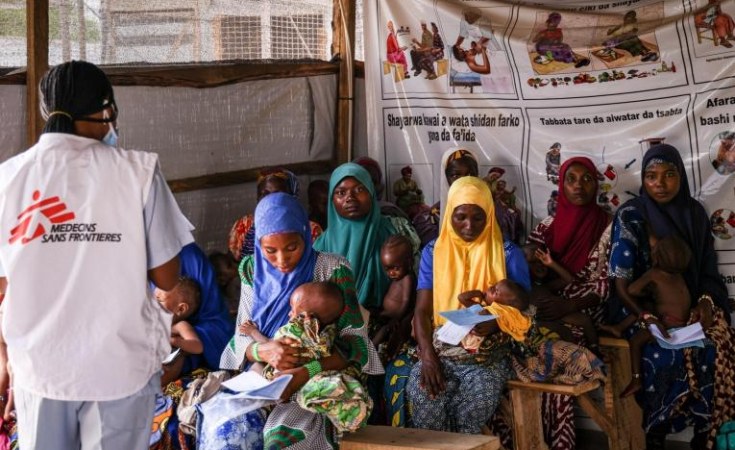Between January to May this year, 10,200 malnourished children were treated in Nigeria's North-western region.
The Médecins Sans Frontières/Doctors Without Borders (MSF) said it provided inpatient treatment to 10,200 severely malnourished children with medical complications in the country's North-west region in four months.
The organisation also said it admitted 51,000 children to its outpatient feeding programmes within the same period.
The MSF, in a statement sent to journalists on Tuesday, warned that the current humanitarian response in the region is insufficient to avert a potential catastrophe in the coming months.
"Inpatient admissions were 26 per cent higher than in the same period in 2022 - numbers which were already unprecedently high," Abdulkareem Yakubu, a field communications officer at the MSF, said.
The MSF said it "has opened three new outpatient therapeutic feeding centres, in addition to the 10 inpatient centres and 32 outpatient centres that it already manages across Kano, Katsina, Kebbi, Sokoto and Zamfara states."
MSF said the admissions are expected to rise significantly in the lean season when food stocks run low. The lean season in Nigeria is between May to August.
"The numbers of malnourished children that we're receiving in our facilities are a strong indicator that the further we get into the lean season, the more cases we'll receive," the statement quoted MSF medical coordinator Htet Aung Kyi.
"Raging conflict in the deep north-western states, especially Katsina, Sokoto, kebbi and Zamfara states, has led to the death and displacement of hundreds of people in a decade.
"North-west Nigeria has some of the worst health indicators in the country. Escalating levels of violence in recent years have contributed to turning an alarming malnutrition situation into a full-blown crisis.
"Armed groups regularly raid towns, loot property and kidnap local people for ransom. Many residents have fled their homes to safer areas. Others have stayed but are unable to access their farms or places of work due to the worsening insecurity. People in need of medical care face challenges reaching health centres and hospitals because of the risks of travelling on unsafe roads," the MSF lamented.
While lamenting that the crisis has not been given the required attention, MSF called on the Nigerian government and local health authorities to act towards preventing the loss of lives.
It also called for preventive measures, including food distribution, early detection of malnutrition cases, and improvements in ensuring food security.


